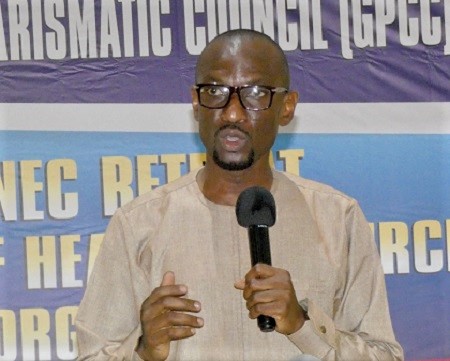
Seal loopholes in public purse: Wilson Jnr charges govt
The Chief Crusader of the Crusaders Against Corruption Ghana, Mr Emmanuel Wilson Jnr, has called on the government to make conscious efforts to seal the loopholes in the public purse rather than introduce the Electronic Transfer Levy (E-Levy).
He noted that what Ghana needed to do was consciously and urgently cut down on unnecessary expenditure.
"Permit me to strongly add that the main reason why debates are being raised as to why Ghana should not go to the International Monetary Fund (IMF) is just because the IMF would streamline our unnecessary expenditure and that is what Ghana is uncomfortable with. This is what is referred to as the IMF conditionalities. It is not anything ambiguous and so anyone who really wishes Ghana well as in our current state of economic struggle, should not shy away from any institution that would want us to cut down on unnecessary expenses," he said.
Mr Wilson Jnr stated this while addressing the 53rd annual conference of the Ghana Pentecostal and Charismatic Councils (GPCC) 53rd Annual Conference at the Pentecost Convention Centre at Gomoa Fetteh in the Central Region.
Streamline
The government, he said, proposed the E-levy for reasons which included expanding the tax net and the country's economy being in distress.
He, however, explained that to solve those issues, the government would have to cut down on expenditure and protect the public purse.
"It has been proven that when we as a nation are able to cut down these unnecessary expenditures, even by 30 per cent, Ghana shall save about GH¢8 billion each year," he said.
That figure, he said, was higher than what was expected from the E-levy.
Mr Wilson Jnr said since last year when the 2022 budget was brought to Parliament, the issue of the E-levy had been a topic of discussion, which made it important to educate the clergy on the levy for them to further educate their members.
"Charges are demands or an amount as a price for a service rendered or goods supplied. So when the telcos and banks charge you and me for any electronic transaction, they do so because they have or are rendering services. This is totally different from what the E-levy seeks to do," he explained.
Discriminatory
He added that the proposed tax was discriminatory and contradicted the characteristics of a tax, citing an example of two people paying for equal amounts of fuel, one with cash and the other, electronically.
Both, he said, would get the same litres of fuel, however, the one paying electronically would bear an additional cost of 1.75 per cent of the amount paid but receive the same litres of fuel as the one that paid with cash.
